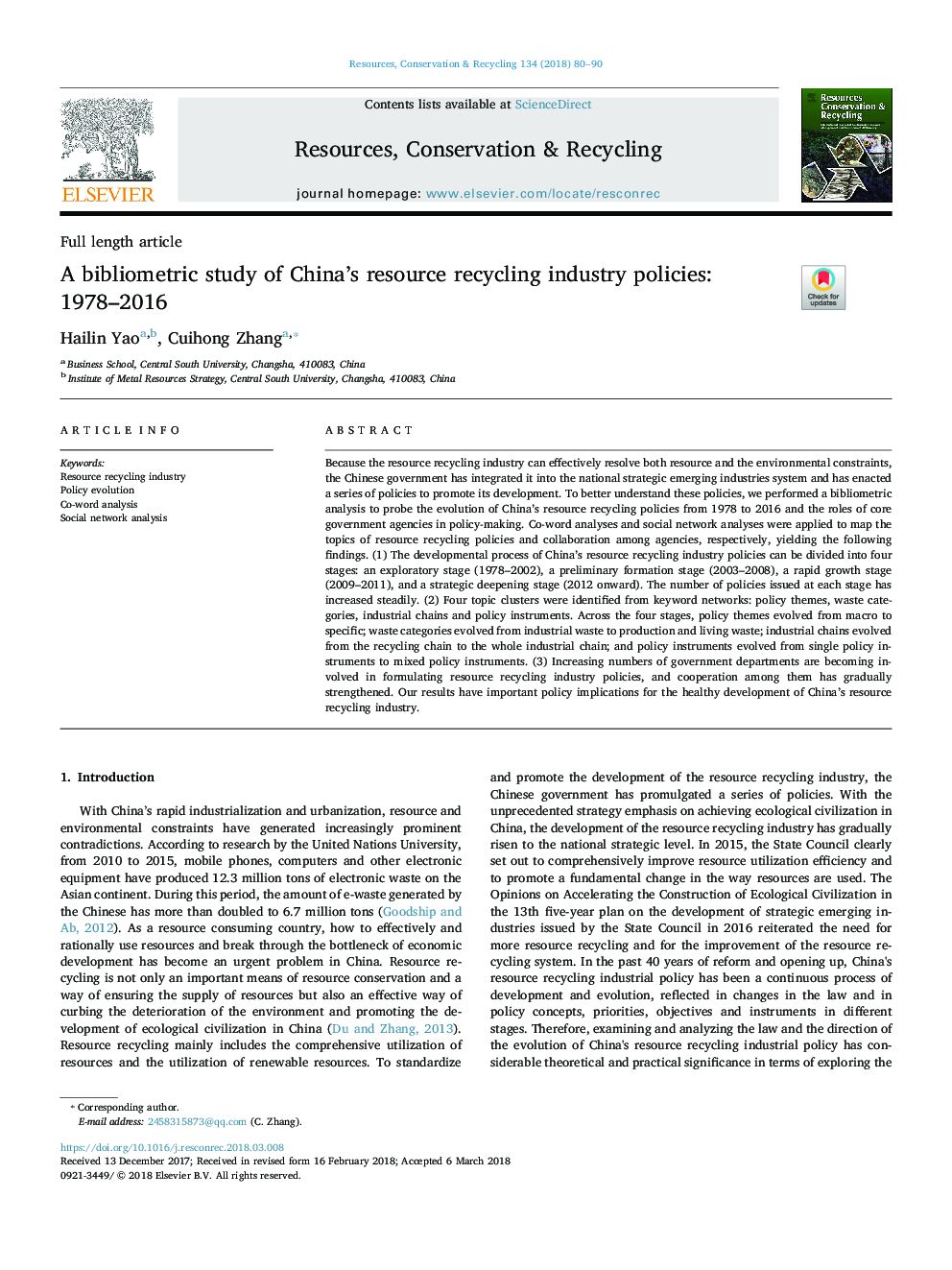| Article ID | Journal | Published Year | Pages | File Type |
|---|---|---|---|---|
| 7494147 | Resources, Conservation and Recycling | 2018 | 11 Pages |
Abstract
Because the resource recycling industry can effectively resolve both resource and the environmental constraints, the Chinese government has integrated it into the national strategic emerging industries system and has enacted a series of policies to promote its development. To better understand these policies, we performed a bibliometric analysis to probe the evolution of China's resource recycling policies from 1978 to 2016 and the roles of core government agencies in policy-making. Co-word analyses and social network analyses were applied to map the topics of resource recycling policies and collaboration among agencies, respectively, yielding the following findings. (1) The developmental process of China's resource recycling industry policies can be divided into four stages: an exploratory stage (1978-2002), a preliminary formation stage (2003-2008), a rapid growth stage (2009-2011), and a strategic deepening stage (2012 onward). The number of policies issued at each stage has increased steadily. (2) Four topic clusters were identified from keyword networks: policy themes, waste categories, industrial chains and policy instruments. Across the four stages, policy themes evolved from macro to specific; waste categories evolved from industrial waste to production and living waste; industrial chains evolved from the recycling chain to the whole industrial chain; and policy instruments evolved from single policy instruments to mixed policy instruments. (3) Increasing numbers of government departments are becoming involved in formulating resource recycling industry policies, and cooperation among them has gradually strengthened. Our results have important policy implications for the healthy development of China's resource recycling industry.
Related Topics
Physical Sciences and Engineering
Energy
Renewable Energy, Sustainability and the Environment
Authors
Hailin Yao, Cuihong Zhang,
